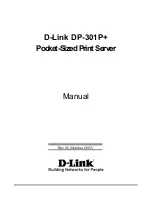
Chapter 6: BIOS
91
MCP0 (IIO PCIe Br4)
This item configures the PCI-E Bifuraction setting for a PCI-E port specified by the user.
The options are x16 and
Auto
.
MCP1 (IIO PCIe Br5)
This item configures the PCI-E Bifuraction setting for a PCI-E port specified by the user.
The options are x16 and
Auto
.
Socket 0 PcieBr0D00F0 - Port 0/DMI PcieBr1D00F0 - Port 1A PcieBr2D00F0 -
Port 2A PcieBr3D00F0 - Port 3A PcieBr4D00F0 - MCP 0 PcieBr5D00F0 - MCP 1
Link Speed
Use this item to select the link speed for the PCI-E port specified by the user. The op-
tions are
Auto,
Gen 1 (2.5 GT/s), Gen 2 (5 GT/s), and Gen 3 (8 GT/s).
PCI-E Port Max Payload Size
Selecting
Auto
for this feature will enable the motherboard to automatically detect the
maximum Transaction Layer Packet (TLP) size for the connected PCI-E device, allowing
for maximum I/O efficiency. Selecting 128B or 256B will designate maximum packet size
of 128 or 256. Options are
Auto
, 128, and 256.
Auto
is enabled by default.
IOAT Configuration
Disable TPH (TLP Processing Hint)
TPH is used for data-tagging with a destination ID and a few important attributes. It can
send critical data to a particular cache without writing through to memory. Select No in this
item for TLP Processing Hint support, which will allow a "TPL request" to provide "hints"
to help optimize the processing of each transaction occurred in the target memory space.
The options are
No
and Yes.
Prioritize TPH (TLP Processing Hint)
Select Yes to prioritize the TPL requests that will allow the "hints" to be sent to help facilitate
and optimize the processing of certain transactions in the system memory. The options are
Enable and
Disable
.
Relaxed Ordering
Select Enable to enable Relaxed Ordering support which will allow certain transactions to
violate the strict-ordering rules of PCI and to be completed prior to other transactions that
have already been enqueued. The options are
Disable
and Enable.
















































